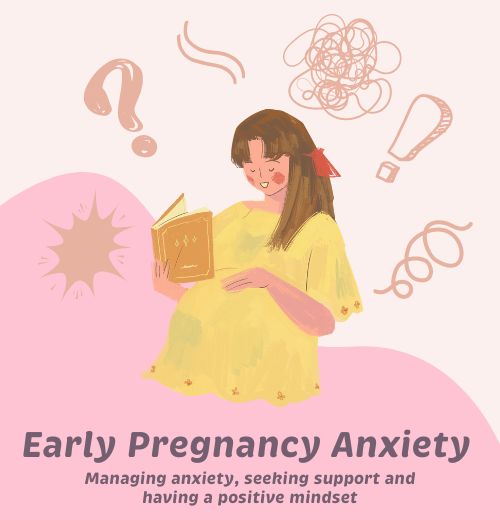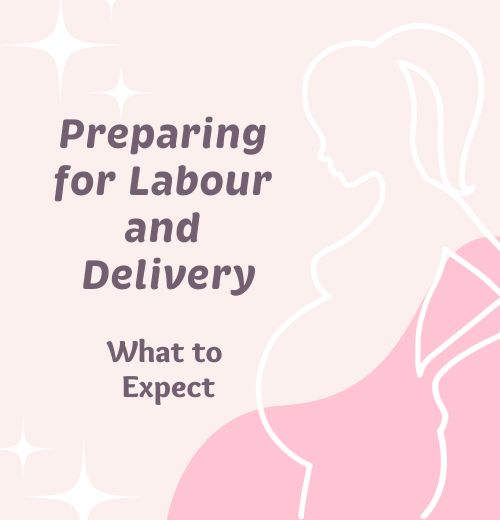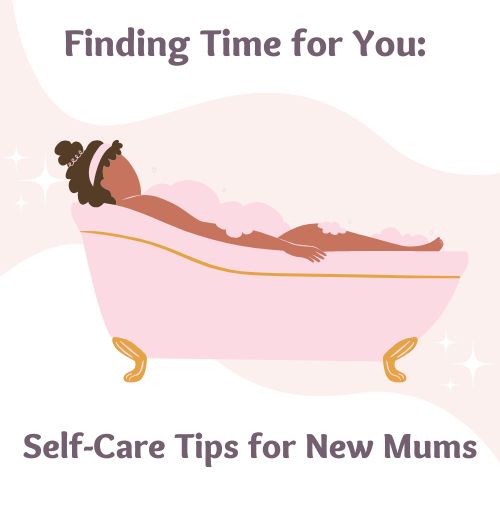Early Pregnancy Anxiety: Navigating Common Concerns and Embracing Positivity

The journey to parenthood is a remarkable and transformative experience, but it's also accompanied by a range of emotions, including anxiety. Early pregnancy, especially the first trimester, can be a time of heightened concern and worry for many expectant mothers. From the excitement of a positive pregnancy test to the anticipation of the first ultrasound, the mix of emotions can be overwhelming. Here at Partum Panties we know from experience. Today we’re going to delve into some common concerns and worries during the first trimester and explore strategies for managing anxiety while maintaining a positive mindset.
1. The Rollercoaster of Emotions
When you are trying to get pregnant, the moment that pregnancy test shows positive, a surge of emotions can flood in – excitement, joy, but also fear and uncertainty. It's important to recognise that experiencing a range of emotions is entirely normal. Hormonal changes during early pregnancy can intensify these emotions, leading to mood swings and anxiety. Acknowledging these feelings and understanding that they are a part of the process can help alleviate some of the anxiety associated with them.
2. Health and Well-being of the Baby
One of the most common sources of anxiety in the first trimester revolves around the health and well-being of your developing baby. Fears about miscarriage, birth defects, and complications can consume expectant mothers. To manage this anxiety, it's crucial to maintain open communication with your healthcare provider. Regular antenatal visits and discussions about your concerns can provide reassurance and accurate information.
3. Navigating Physical Changes
Early pregnancy comes with a multitude of physical changes, which can include nausea, fatigue, and breast tenderness. These changes can be both uncomfortable and anxiety-inducing. To manage this, prioritise self-care. Proper rest, a balanced diet, and gentle exercise can help alleviate some of the physical discomfort, which in turn can have a positive impact on your emotional well-being.
4. Sharing the News
Deciding when and how to share the news of your pregnancy with family and friends can also contribute to anxiety. Fear of judgment or unexpected reactions can create stress. Remember that this is your journey, and you have the right to share your news when you feel comfortable. Surround yourself with supportive individuals who will uplift and encourage you during this exciting time.
5. Balancing Work and Pregnancy
For many expectant mothers, balancing the demands of work and the physical changes of pregnancy can be a significant source of anxiety. Concerns about job security, potential discrimination, and managing workloads can take a toll. Open communication with your employer and HR department when the time is right for you can help create a supportive work environment. Additionally, exploring flexible work arrangements might help ease some of these concerns.
Strategies for Managing Early Pregnancy Anxiety
1. Educate Yourself
Knowledge is empowering. Educate yourself about the stages of pregnancy, common symptoms, and the changes your body is undergoing. Accurate information can dispel myths and alleviate unnecessary worries.
2. Mindfulness and Relaxation Techniques
Practicing mindfulness, meditation, and deep breathing can help calm anxious thoughts and promote relaxation. These techniques can be particularly effective in managing stress and anxiety.
3. Seek Support
Connect with other expectant mothers, either through in-person support groups or online communities. Sharing your concerns and experiences with those who understand can provide comfort and reassurance.
4. Communicate with Your Partner
If you have a partner, open and honest communication is essential. Share your worries and fears with them and encourage them to share their thoughts as well. Facing challenges together can strengthen your bond.
5. Professional Help
If anxiety becomes overwhelming and interferes with your daily life, consider seeking professional help. A therapist or counsellor with experience in perinatal mental health can provide guidance and coping strategies tailored to your needs.
Embracing a Positive Mindset
Amidst the worries and uncertainties, maintaining a positive mindset is crucial. Focus on the exciting aspects of this journey – the growth of new life, the bond you're forming with your baby, and the amazing changes your body is capable of. Surround yourself with positivity – read books, watch documentaries, and engage in activities that uplift and inspire you.
Remember that you are not alone in this experience. Countless women have navigated the path of early pregnancy before you, and many will do so after. Each pregnancy is unique, but the shared experience of bringing new life into the world is a testament to the strength and resilience of mothers everywhere.
Early pregnancy anxiety is a common experience that many expectant mothers face. By acknowledging your feelings, seeking support, and adopting effective strategies for managing anxiety, you can navigate the first trimester with greater confidence and peace of mind. Embrace the transformative journey you're embarking upon and focus on the positive aspects of this remarkable time in your life.



